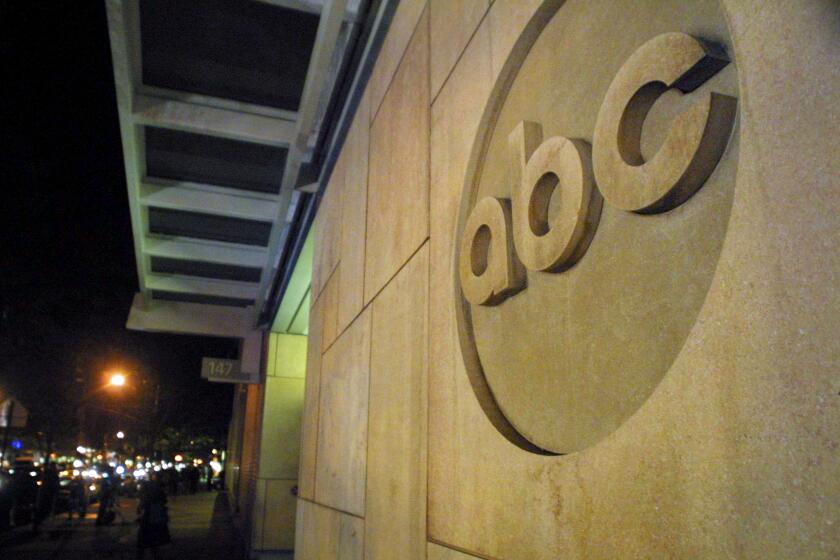Disney ends deal with YouTube star PewDiePie over Nazi imagery and jokes

YouTube star PewDiePie is under fire for making jokes construed as anti-Semitic. (Feb. 14, 2017)
- Share via
Brands hire YouTube stars to do what TV commercials can’t — reach young people who prefer media that’s unpolished and relatable.
That’s one reason Walt Disney Co.’s Maker Studios tapped PewDiePie, YouTube’s biggest personality, who has amassed tens of millions of subscribers with off-the-cuff banter about video games and off-color jokes.
But PewDiePie’s irreverent humor also cost him partnerships with both Maker and YouTube, which announced Tuesday that it canceled the second season of his reality show, “Scare PewDiePie,” amid backlash over anti-Semitic references.
The decision by the two companies to distance themselves from the Swedish video creator, whose real name is Felix Kjellberg, reflects a broader tension between the ad-hoc attitude of so-called influencers and the cautious nature of the brands that pay them.
“It’s the lack of professionalism that you get with YouTube stars that is what’s appealing to the millennial audience,” said Alan Wolk, an independent media analyst. “It seems more authentic.”
But that lack of professionalism has its downside.
Maker Studios, which helps YouTube celebrities produce and promote videos in exchange for a cut of ad revenue, said Monday that it would sever ties with PewDiePie, its best-known star.
The Wall Street Journal reported that nine videos posted by the PewDiePie account since last August included anti-Semitic references, including a Jan. 11 video that showed him hiring two men to carry a sign that said, “Death to all Jews.”
YouTube removed ads from the Jan. 11 video within days of its posting, but Maker Studios did not publicly cut its affiliation with Kjellberg until Monday.
The studio said in a statement, “Although Felix has created a following by being provocative and irreverent, he clearly went too far in this case and the resulting videos are inappropriate. Maker Studios has made the decision to end our affiliation with him going forward.”
Maker, which Disney bought for $500 million in 2014, did not respond to requests for comment about the delay between the video being posted and Maker’s public response.
YouTube typically reviews content after users flag it as inappropriate or violent. Reviewers consider the intent as well as the context when deciding whether a video can remain online, according to YouTube. Some videos that don’t violate guidelines may still be considered inappropriate for advertisers.
In addition to canceling Kjellberg’s show, a spokeswoman said, YouTube removed ads from all nine of the videos in question and pulled the channel from its Google Preferred advertising program, which aggregates the most engaging and “brand safe” content from YouTube for advertisers to buy time on.
The show’s cancellation is likely to be the biggest blow to Kjellberg, since he will be able to continue to earn ad revenue on other videos, just not through Google Preferred. YouTube typically takes a cut of 45% of ad revenue, and Maker takes another cut after that.
In December Forbes magazine estimated that Kjellberg earned $15 million in the year that ended last June, with his book, “This Book Loves You,” and the first season of “Scare PewDiePie” on YouTube Red, the platform’s ad-free subscription service, driving revenue gains. The PewDiePie channel has more than 53 million subscribers — the most by far of any individual.
Wolk attributed that to Kjellberg’s good looks and defiant attitude.
But it was that same attitude that landed him in hot water.
“There’s a line, and he crossed it,” said Sarah Ullman, a consultant and former employee at Maker who did not work on Kjellberg’s account.
But Ullman also defended the right of YouTube video creators, also known as vloggers, to retain editorial control over the channels they essentially own.
“These creators are often successful because they’re making something that’s not down the middle, that is controversial, that generates clicks,” she said. “That’s the whole point.”
At the same time, a firm like Maker Studios succeeds “based on its ability to retain and monetize its relationships with creators.”
They toe that line lightly, coaching their stars on how to grow their audiences, expand their reach on social media and stay within YouTube guidelines, but generally not exerting editorial control, Ullman said.
They also generally include in their contracts terms about how revenue will be shared, how they will bring in brand revenue and how they will support the vlogger with production and ad sales.
Brands are wary of meddling with editorial content for the same reason as firms such as Maker — they don’t want to stifle the expression that was drawing eyes and clicks in the first place. But, Ullman said, brands do carefully vet the creators they sign, and sometimes creators surprise them by taking their content in a new direction.
Wolk said Maker should have been monitoring PewDiePie’s channel more closely.
“PewDiePie is their big star,” he said. “Somebody should have been tracking it.”
The Associated Press was used in compiling this report.
ALSO
Valentine’s Day, so lucrative for businesses, has a naughty history
What to do with holograms? 8i gets $27 million to explore the possibilities
‘SNL’ ratings soar thanks to Alec Baldwin’s Trump and Melissa McCarthy’s Sean Spicer
UPDATES:
5:50 p.m.: This article was updated with staff reporting.
This article was originally published at 9:35 a.m.
More to Read
Inside the business of entertainment
The Wide Shot brings you news, analysis and insights on everything from streaming wars to production — and what it all means for the future.
You may occasionally receive promotional content from the Los Angeles Times.











